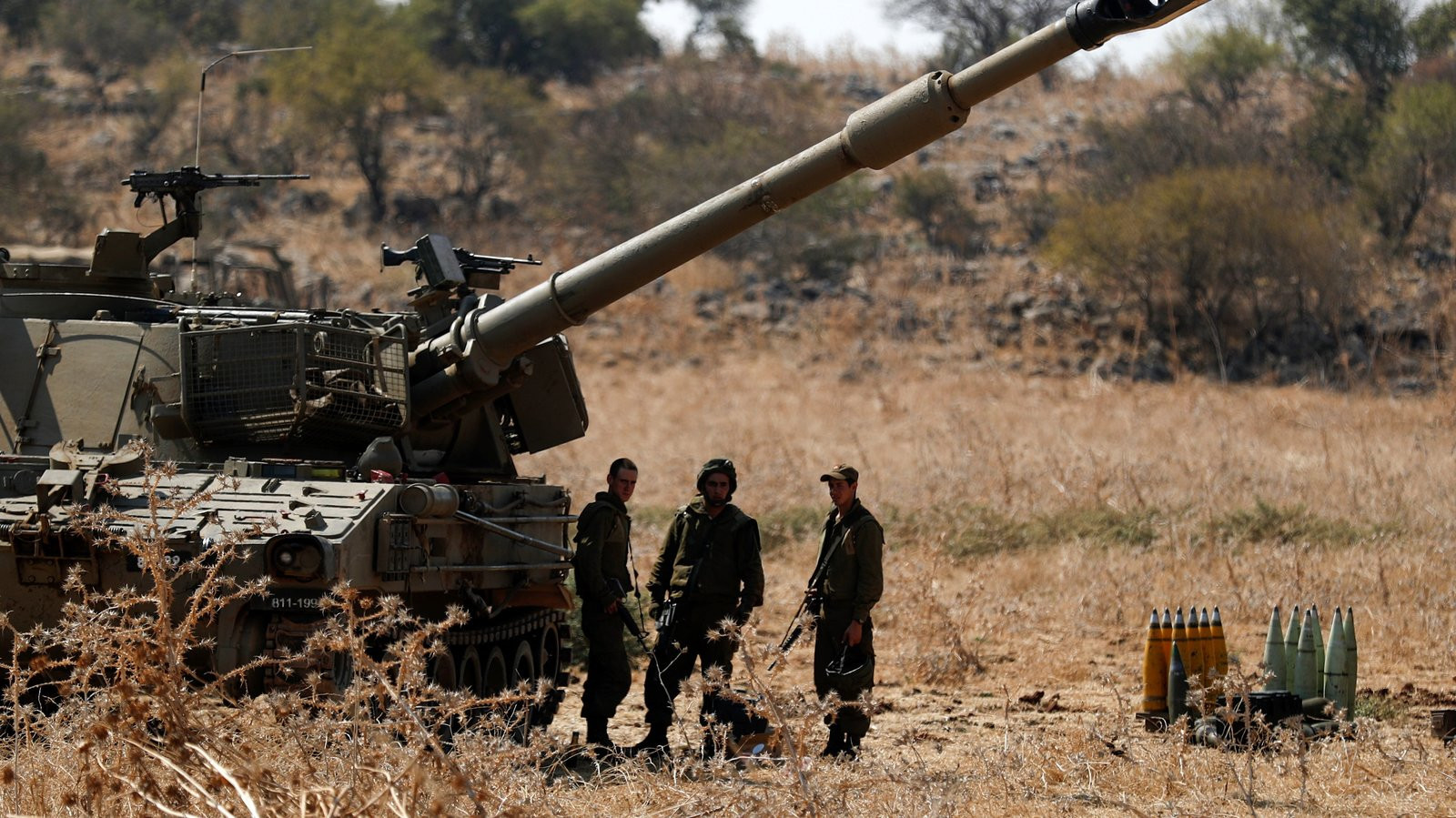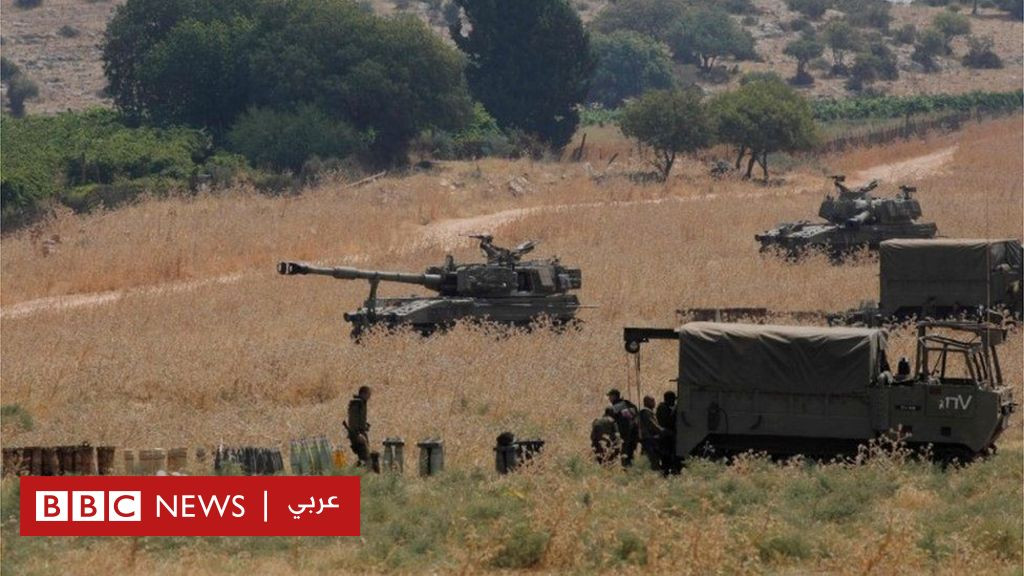A major war in the Middle East is “a real danger”, a Cabinet minister has warned. An escalation of hostilities between Israel and Hezbollah occurred overnight. Early on Sunday, the Israeli military launched what it described as “pre-emptive” strikes against the militant group, saying it had detected plans to attack Israel. Hezbollah is an Iranian-backed Lebanese Shia Islamist political party and paramilitary group. It launched a series of drones against targets in Israel, saying it was acting in response to the killing of one of its top commanders in an air strike on Beirut last month. Israeli Prime Minister Benjamin Netanyahu says “we are determined to do everything to defend our country - adding “whoever harms us, we will harm them”.
Speaking to Sky News on Sunday, Chancellor of the Duchy of Lancaster Pat McFadden said the UK is “very concerned” by the escalation. “Even as this unfolds, the UK Government and the international community would urge all parties not to escalate further and to avoid a major regional war. That is the real danger facing the area,” he said. “We hope this doesn’t turn out to be that and we hope that afterwards we can de-escalate the situation.”
British ministers have been involved in an international diplomatic effort to avoid further escalation to the conflict between Israel and Hamas that erupted following the terrorist group’s attack on Israel last October. Since coming to office last month, new Foreign Secretary David Lammy and Defence Secretary John Healey have visited the region, while Prime Minister Sir Keir Starmer warned Iran’s president in a phone call this month not to attack Israel.
Sunday’s outbreak of hostilities came as Egypt is hosting another round of talks aimed at securing an end to the conflict in Gaza. Reports from the region suggested there have been no further strikes following the initial exchange of fire early on Sunday, but the situation remains tense. Israel said earlier that it expected an “extensive” Hezbollah response and declared a 48-hour state of emergency, giving the military special powers.
A Major Escalation
The Israeli military said around 100 fighter jets had destroyed “thousands” of rocket launchers on Sunday morning, in what it described as an act of “self-defence”. Lebanon’s health ministry reported that three people had been killed. Hezbollah later said it had fired hundreds of rockets towards northern Israel, calling it “phase one” of a multi-stage attack in retaliation for the killing of a senior commander. No casualties have been reported in Israel. The exchange marks a major escalation of tensions between Israel and the Iran-backed Shia Muslim armed group.
A Long-Standing Conflict
There have been almost daily exchanges of fire across the Israel-Lebanon border since the day after the start of the war between Israel and Hamas in Gaza on 7 October. Hezbollah has said it is acting in support of the Palestinian group that is also backed by Iran. Both Hamas and Hezbollah are proscribed as terrorist organisations by Israel, the UK and other countries. So far, more than 560 people have been reported killed by Lebanon’s health ministry, the vast majority of them Hezbollah fighters, while 26 civilians and 23 soldiers have been killed in Israel, according to authorities. The UN says almost 200,000 people have also been displaced on both sides of the border.
Fears of a Wider War
The Israel Defence Forces (IDF) said in a statement early on Sunday that it had identified “extensive preparations” for a large-scale aerial attack by Hezbollah, which had prompted it to launch the pre-emptive strikes. It added that its planes had struck over 40 launch areas, some of which it said were aimed towards central Israel. Prime Minister Benjamin Netanyahu said Israeli forces were “determined to do everything possible to defend our country” and return tens of thousands of residents of northern Israel who have been displaced by the conflict. “Whoever harms us - we will harm them,” he added. Foreign Minister Israel Katz said Israel was “acting to protect its citizens and territory” and “does not seek all-out war” in the Middle East.
A Tense Situation
The escalation has happened as efforts continue for a ceasefire and hostage release deal in Gaza - the main hope to de-escalate tensions along the Israel-Lebanon border. Escalating cross-border hostilities between the foes have heightened fears of an all-out conflict.
The Stakes are High
If Israel and Hezbollah wanted an all-out war it would have happened a long time ago. Each side would welcome the destruction of the other, but the time has not been right so far for either of them to plunge into a full-scale conflict. The intense exchange of hostilities across the Israel-Lebanese border on Sunday morning once more took the parties to brink of such a war, but once again they paused and pulled back. In terms of munitions expended, it was the biggest engagement for many months. Israel put 100 jet fighters in the air, which conducted sorties over seven hours and struck more than 40 sites with missiles, but killed only three people, according to the count as of Sunday evening.
The Israel Defense Forces (IDF) were clearly taking far more care over civilian casualties in Lebanon than they have in Gaza. While Israel insists it will fight until Hamas is completely obliterated, its foreign minister, Israel Katz, stressed on Sunday his government had no interest in such an existential fight with Hezbollah.
According to its own version of events, Hezbollah launched 320 rockets and a large number of drones on Sunday morning, but caused only a small handful of injuries. The only Israeli fatality was caused by debris from an interceptor missile. The Lebanese Shia militia claimed nonetheless to have achieved its aims, to avenge a commander killed by Israel last month. Its spokesperson stretched credulity by claiming its plans had not been affected in any way by the earlier Israeli airstrikes, but the aim of the message was clear, to draw a line under the day’s hostilities and reduce pressure on Hezbollah to keep the battle going.
Both sides have compelling reasons not to go to war now. Israel does not have the stamina for another front while it has not yet managed to eliminate Hamas completely in Gaza and with the West Bank being driven to the brink of a wider explosion of violence by hardline settlers and their backers inside the Israeli state. IDF commanders are also aware that a war with Hezbollah could not be won without a ground invasion, which would have a heavy cost in Israeli lives. Despite recent upgrades, Israeli tanks are still considered highly vulnerable to ambush.
Benjamin Netanyahu has good reason to keep Israel in a state of conflict, as it helps fend off a reckoning with the electorate and the courts, where he faces corruption charges. The prime minister and his security cabinet may be weighing further sorties after Sunday’s apparent success, but that is a long way from sending young foot soldiers over the border or provoking Hezbollah missile attacks on Tel Aviv or other cities.
For its part, Hezbollah’s leadership has assets to protect in Lebanon, political and economic, that would be devastated in a war with Israel. The group’s regional patron, Iran, is clearly not ready for a conflict either and has deferred for now its own threatened response to Israel’s killing of the Hamas political leader Ismail Haniyeh in Tehran last month.
Hezbollah and Iran do not share the apocalyptic self-destructive impulses of Yahya Sinwar, the Hamas commander in Gaza, who launched his surprise 7 October attack on Israel based on the mistaken assumption his allies in Beirut and Tehran would join the battle.
Just because neither Israel nor Hezbollah wants all-out war now, does not mean it is not going to happen, however. Both sides are using very crude tools – high explosives mainly – to send each other messages, and the room for miscalculation is always high.
The IDF was reportedly on the brink of going to war in Lebanon immediately after 7 October, on the strength of faulty intelligence suggesting that Hezbollah was involved in the attack and its fighters were about to pour over the northern border.
The potential for unintended consequences was also high on Sunday. If the IDF account of events was accurate, its warplanes blew up dozens of launch sites and thwarted planned Hezbollah strikes against strategic targets in central Israel. If one of those strikes had caused substantial casualties, the political pressure on the Netanyahu government to clear Hezbollah out of southern Lebanon could easily have become irresistible.
A Dangerous Dance
The room for error is likely to be greatest when each of the parties try to guess the other’s internal political dynamics. For example, when Israel killed the Hezbollah commander, Fuad Shukr in an airstrike on south Beirut last month, there was no way of knowing how many rockets or missiles Hezbollah would deem sufficient to avenge him, or where they should be aimed. If Netanyahu extends the bombing campaign, he runs the risk of triggering Iranian involvement in support of its proxy.
Similarly, while driving more than 80,000 Israelis from their homes with its cross-border bombardment, Hezbollah could not possibly gauge the political pressure it would put on the Netanyahu coalition to take over southern Lebanon so that the displaced residents could return.
In the midst of this mutual recklessness, the US is desperately trying to mitigate the risk. The Biden administration’s principal aim since 7 October – and principal achievement, US officials argue – has been to prevent the Gaza war becoming a regional conflagration. Washington has urged restraint on its friends, while moving its forces into the region to deter its enemies. The central strategy – or the essential hope at least – is that a hostages-for-peace agreement in Gaza would also defuse the worsening confrontation on Israel’s northern border.
Talks continue this week and American briefers still insist, despite evidence to the contrary from recent experience, that a deal is within reach. But there are serious doubts over whether Netanyahu or Sinwar really want an end to the fighting. War can break out without both sides wanting it, but the same cannot be said about peace.


















